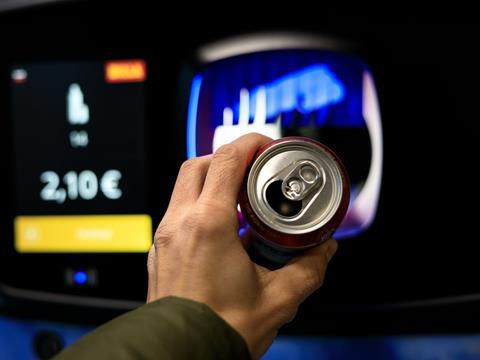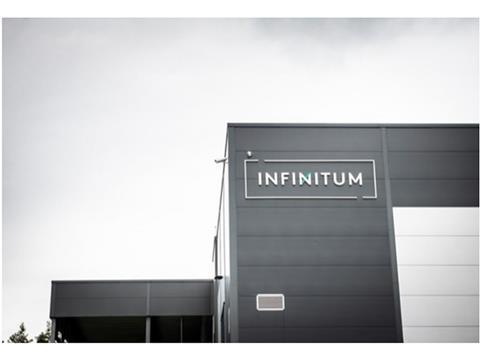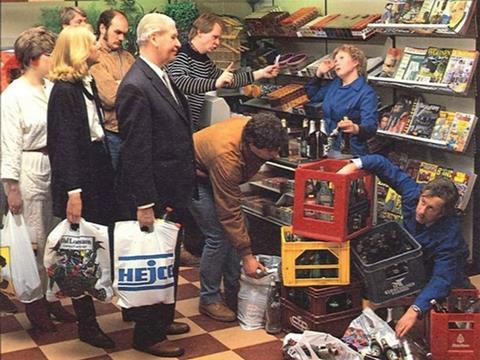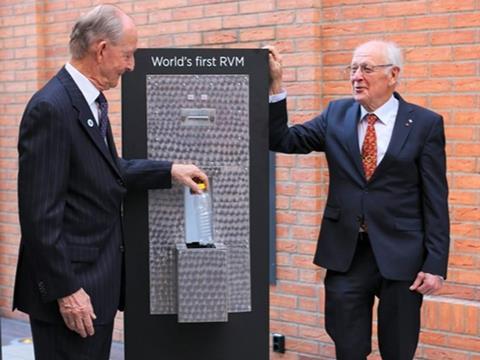
Norwegian recycling company TOMRA has given an insight into Norway’s unique deposit return scheme (DRS), which it says is an efficient, transparent and responsive system that could provide a role model for other countries around the world.
The company says the current DRS container deposits are 2 NOK (approximately €0.20) for containers 0.5 litres or less, and 3 NOK (approximately €0.30) for containers over 0.5 litres. Eligible containers are plastic (predominantly PET, HDPE) and metal (aluminum/tinplate), for all beverage types. In 2021, container return rates were 92.3% (91.5% of cans, and 92.8% of plastic bottles).
Designing the Deposit Return Scheme
TOMRA states Norway was one of the first countries in the world to establish a deposit return system for reusable bottles, with a system for refillable glass containers established in 1902, and automated return of refillable glass bottles through reverse vending machines (RVMs) in the early 1970s.
Apparently, Norway’s deposit return system for single-use beverage containers is unique because it was voluntarily created by beverage and grocery retail industries. The system for non-refillable containers – including cans and PET – was implemented in 1999, due to environmental taxation imposed by the Norwegian Government.
The company says there is a basic tax for beverage producers on all single-use containers, plus a variable environmental tax that is reduced as return rates increase. Containers with a 95% return rate or more are exempt from the environmental tax, creating a financial incentive for producers to participate in the DRS and achieve the highest possible return rate.
The deposit return scheme landscape in modern-day Norway

Reportedly, the deposit return system in Norway is part of everyday life for its 5.425 million residents. TOMRA claim that 1.692 billion cans and PET bottles were sold on the Norwegian market in 2021, equating to an average consumption of 312 containers per person, per year.
The system is managed by Infinitum, a privately owned not-for-profit organization, working on behalf of retailers and producers. However, Norway’s deposit return system is supposedly the responsibility of the country’s beverage producers – they pay 100% of the net costs for the system.
Unredeemed deposits, revenue from the sales of container materials and other revenues (mainly from interest) cover the largest proportion of the costs – covering almost 95% in 2021, with 5.4% paid through an Extended Producer Responsibility (EPR) fee from producers.
TOMRA says the EPR fees for each producer are based on the recycling cost and material value of each container material type that the producers have on the market, with the fees differentiating between clear PET versus coloured PET (see table). For example, aluminium cans do not carry any additional EPR cost for producers in Norway; this is because the inherent commodity value of aluminium, plus the revenue from unredeemed deposits, outweigh their cost to recover and process.
The company adds that Norway’s deposit return system is run and managed by regulation, not legislation, meaning changes to improve and update the deposit system can be done more easily.
Key deposit return factors in Norway: convenient recycling and consumer incentive
Infinitum operates its DRS via a “return-to-retail” model (meaning retailers who sell beverages must return the empty containers for recycling), with both manual and automatic return points.
Allegedly, across Norway there are approximately 3,900 RVMs in 3,500 collection points for automated return of empty containers, and approximately 11,500 manual return points, equalling one redemption point for every 362 people. There are also 35 logistic hubs and five processing facilities.
TOMRA states the DRS in Norway accepts aluminium and steel cans, PET and HDPE plastic bottles, and all stores must accept all eligible containers included in the DRS. All containers require Infinitum-approved labelling and must be produced according to the material packaging specification.
This means the exact materials used can be detected and Infinitum can confirm that all materials are recyclable. This ensures the materials being recycled are of the highest quality and purity possible, able to be reused often.
RVMs in Norway can also accept some beverage containers bought outside of the country, if a retailer chooses to offer this option. However, a deposit is not paid out on these containers.
According to TOMRA, Infinitum incentivizes compacting reverse vending machines, (meaning that machines crush the containers after identification and before storage), due to their cost-saving benefit with respect to fraud mitigation and transportation efficiencies. Retail sites with compacting RVMs are paid a higher handling fee than those redeeming manually or without compaction.
Supposedly, by 2018, inflation eroded deposit values and return rates dropped, so the system was adjusted to motivate consumers to participate and drive return rates back up. The deposit values were increased. For containers sized 0.5 litres or less, the deposit increased from 1 NOK to 2 NOK (approximately €0.20), while those over 0.5 litres saw their 2.50 NOK deposit value raised to 3 NOK (approximately €0.30). The return rate rose by 7.2% for cans 5% for PET between the end of 2017 and the end of 2021.
Results: high return rates and reduction in container litter
According to Infinitum’s annual report for 2021, more than 1.55 billion beverage containers were returned for recycling.
More than 941 million cans were returned to RVMs, equal to 91.5% of all cans sold and recycling almost 13,000 tonnes of aluminium. With a return rate of 92.8%, over 611 million plastic bottles were returned through the deposit scheme and more than 23,000 tonnes of plastic were mechanically recycled.
Reputedly, Norway achieved a total return rate of 92.3% in 2021 (across both cans and plastic bottles) through the deposit system. Norway is apparently expected to reach a collection rate of 93% over the coming years, due to the increased deposit value. While not part of the European Union (EU), Norway follows the recommendations of the EU and targets in the Single-Use Plastics Directive to separately collect 90% of plastic bottles by 2029, and is reported to be already meeting these non-binding targets.
Of returned containers, in-store RVMs account for around 94% of those collected, with 6% collected at manual return points or from the food service industry. From an environmental perspective, less than 1% of beverage containers in Norway are littered, and only one in eight bottles washed up ashore on the Norwegian coastline are actually from Norway; the rest is from its neighbouring countries.
What Norway’s residents think about the deposit return system
From the start of Infinitum, the operator has conducted a web-based category tracker biannually, apparently receiving over 6000 respondents aged over 18. More than 92% say it is very important for them to be able to return every can and bottle. They believe it is good for the environment, know they will receive their deposit back, and all cans and bottles will be recycled into new ones.
TOMRA’s role in Norway’s deposit return scheme
TOMRA has played a major part in Norway’s DRS. In 1972, Norwegian brothers Petter and Tore Planke created a way for customers to return empty refillable bottles to stores, as part of the country’s existing deposit return program for refillable glass.

TOMRA says store owners had more bottles being returned in more varieties, resulting in huge efficiency problems as manually accepting and sorting them was time-consuming and took staff away from other tasks. An automated system was required where consumers could return empty bottles and receive their deposit back, so the brothers developed the first prototype of an automated RVM. By the end of 1972, the Planke brothers established TOMRA, which still provides reverse vending in many Norwegian stores today.

Overall, TOMRA claims Norway’s DRS has had a significant impact on a growing global practice to combat plastic pollution. Taxation fuels retailer participation and commitment to driving high return rates, the high density of collection points and high level of automation increase efficiency in a return-to-retail model where all stores accept all containers. Its centralized operation supports transparency with “regulation rather than legislation” creating a responsive model. The company states these factors combined make the Norwegian DRS a recycling role model.













No comments yet